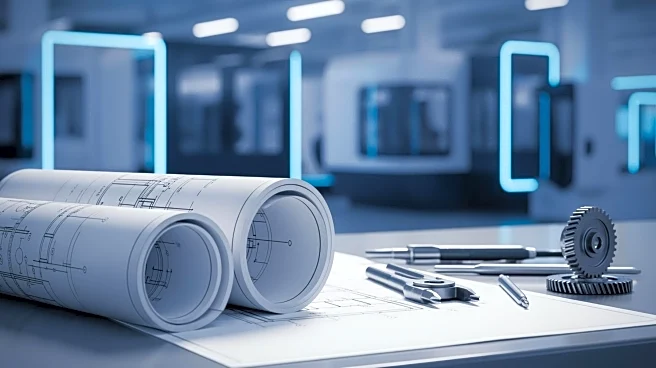What's Happening?
Toyota Motor North America is advancing its commitment to internal combustion engines (ICE) by developing new gas engines in collaboration with Subaru and Mazda. These engines, ranging from 1.5 to 2.0 liters, are designed to be versatile, supporting various powertrain types including electric, hybrid, and hydrogen applications. The company plans to integrate these engines into extended-range electric vehicles (EREVs), where the engine functions as a generator to recharge the battery, rather than driving the wheels directly. This approach aims to optimize efficiency and extend vehicle range without fully abandoning gasoline. Toyota is also exploring the use of biofuel, hydrogen, and synthetic fuel in these engines, with plans to enhance thermal efficiency beyond the 41 percent achieved in 2018.
AD
Why It's Important?
Toyota's strategy highlights the ongoing relevance of ICE technology amidst the growing popularity of electric vehicles. By diversifying powertrain options, Toyota aims to cater to varying market demands and promote decarbonization through multiple pathways. This approach could benefit consumers by offering more choices and potentially lower costs, as the company leverages existing infrastructure and technology. Additionally, Toyota's focus on efficiency and alternative fuels aligns with broader environmental goals, potentially reducing the carbon footprint of its vehicles. The development of high-performance versions for Gazoo Racing models also indicates a continued emphasis on performance alongside sustainability.
What's Next?
Toyota plans to introduce extended-range electric vehicles in China through its joint venture with GAC, applying the EREV technology to models like the Highlander SUV and Sienna minivan. These vehicles will rely solely on electric motors for propulsion, with the gas engine serving as a range extender. The company is also considering long-range plug-in hybrids, aiming for significant electric-only driving distances. As Toyota continues to refine its engine technology, further improvements in efficiency and performance are expected, potentially influencing future vehicle designs and market strategies.
Beyond the Headlines
Toyota's approach raises questions about the future of automotive powertrains and the balance between electrification and traditional combustion engines. The company's emphasis on powertrain diversity reflects a broader industry trend towards flexibility and consumer choice. This strategy may also impact regulatory discussions on emissions and fuel standards, as automakers seek to align with evolving environmental policies while maintaining competitive advantages.










